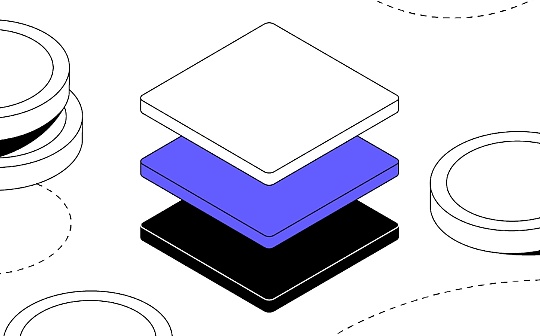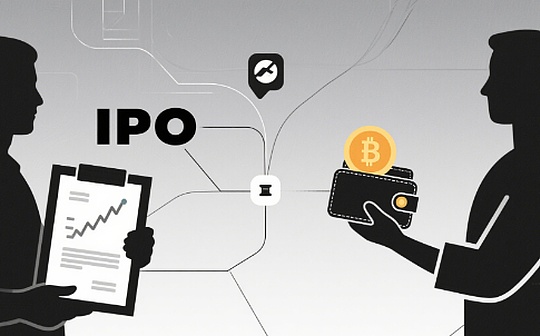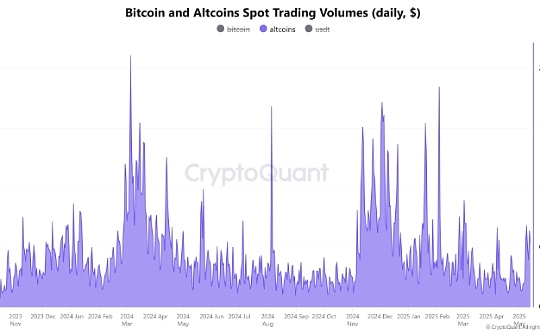YZi Labs participated in the investment and understood the AI "data mining" project Gata | CryptoSeed

Reprinted from chaincatcher
05/19/2025·21DAuthor: Patti, ChainCatcher
Edited by: TB , ChainCatcher
At the end of April 2025, Gata announced the completion of a $4 million seed round of financing, with investors including YZi Labs, IDG Blockchain, Maelstrom Fund, etc. This financing once again attracted the community's attention to its airdrop plan and pushed it onto the list of popular projects in multiple "hair-fucking" communities.
According to official information, Gata, formerly known as Aggregata, is a decentralized AI data infrastructure platform, committed to generating, distributing and utilizing high-quality training data in a more fair and efficient way. The project has been favored by Binance Labs since its early stages, was selected for its MVB (Most Valuable Builder) program and won the "Innovation Excellence Award" at the BNB Chain Eco-Catalyst Awards.
Decentralized AI data value chain
Unlike traditional data platforms, Gata does not regard data as training material, but expands it into a "AI asset" - covering factors such as datasets, models, intermediate weights, processes and operating environments. Its core goal is to reconstruct the production, use and value allocation process of AI training data through decentralized means, so that more people can participate in the AI economy in a fair way.
To this end, Gata has built a relatively complete product system, from the user-oriented "GPT-to-Earn" mechanism, to the automated data agent tool "DataAgent", and then to the decentralized data market and model training pipeline, gradually forming a closed loop of "user-generated data - platform evaluation and screening - model training application - user rewards".
Platform core modules and functions
1. GPT-to-Earn
Gata's earliest product was the Chrome browser extension GPT-to-Earn. When users use language models such as ChatGPT, the plug-in will automatically upload anonymous conversation data for subsequent training, and the uploaded data will receive points rewards.
2. DataAgent
DataAgent is the core tool of the Gata platform, aiming to replace the traditional data annotation process. Users can run specific DataAgent scripts to allow AI to automatically generate structured training data and perform quality evaluation.
For example, the current DVA (Data Validation Agent) will automatically score the graphic and text pairing data set to distinguish useful and invalid data, and will be used to train cutting-edge models such as Stable Diffusion and GPT-4o.
3. Decentralized data storage and on-chain market
Gata is built on BNB Chain’s Greenfield network and uses its decentralized storage capabilities to ensure clear and tamper-free data ownership. At the same time, the platform has developed an on-chain data market, allowing users to put the generated data on the shelves and trade, and even embed the fine-tuning tools and training clients, so that non-technical users can easily participate in the AI data economy.
Airdrop participation method
Gata emphasizes “data is assets, participation is value”, and as a key component of community incentives, Gata has designed airdrop plans around GPT-to-Earn and DataAgent. Users can participate in the following ways:
- Install Chrome extension plug-in, authorize uploading ChatGPT conversations, and linking your EVM wallet
- Run DVA to complete tasks by interacting with Chat GPT and earn points
- Connect to social accounts such as Discord and X to complete tasks, invite friends, etc. to get points;
Users need to pay a small BNB gas fee when uploading data. They can transfer BNB from the main network to the Greenfield network through the official cross-chain bridge.
Data mining? Still waiting for time to verify
In Web3, "data mining" has long surpassed the traditional meaning of data analysis and has become a new mechanism for user data value capture. Whether it is to link users' social behaviors into assets in social protocols such as Lens and CyberConnect, or to NFT data for authorized use by others in Ocean Protocol, "data is assets" is becoming a new paradigm.
Gata's GPT-to-Earn and DataAgent models are also the product of this trend. Although Gata hopes to build a complete set of "everyone can mine data", it still faces challenges to truly form a sustainable closed loop of data economy.
From the perspective of Gata product layout, from lightweight user entrance to underlying infrastructure, it has begun to take shape; but more technical and ecological support is still needed in key points such as data quality governance, incentive closed-loop construction, and real data utilization.
In the future AI economy, data will move from platform monopoly to national participation.
As a new concept, "data mining" is still in the stage of theoretical verification and mechanism polishing. Whether Gata can become a practical sample of this route remains a long-term proposition that has not yet been answered.
This article does not provide investment advice. Due to limited information, please DYOR.


 jinse
jinse

